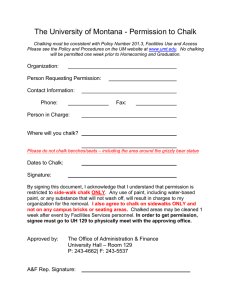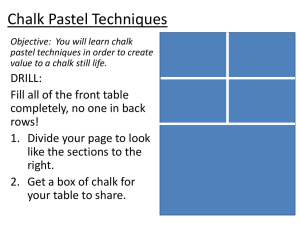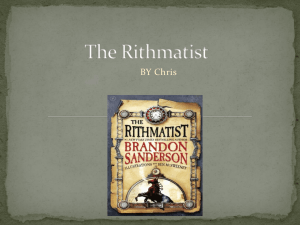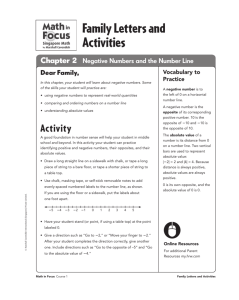L.E. February 22, 2016 Do Now
advertisement
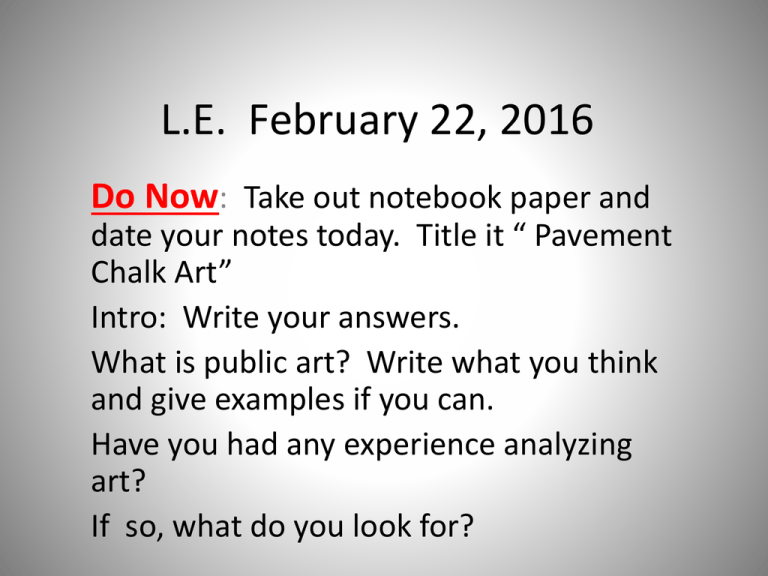
L.E. February 22, 2016 Do Now: Take out notebook paper and date your notes today. Title it “ Pavement Chalk Art” Intro: Write your answers. What is public art? Write what you think and give examples if you can. Have you had any experience analyzing art? If so, what do you look for? Media Analysis Pavement Chalk Art Public Art by Julian Beever What is anamorphosis? • Anamorphosis is a distorted projection or perspective requiring the viewer to use special devices or occupy a specific vantage point (or both) to reconstitute the image. The word "anamorphosis" is derived from the Greek prefix ana-, meaning back or again, and the word morphe, meaning shape or form. Anamorphic illusions are drawn in a special distortion in order to create an impression of 3 dimensions when seen from one particular viewpoint. Objective • Students will be able to analyze the purposes of public art and the techniques Beever uses to create the illusion of three dimensionality. • Your ideas? • What is the purpose of public art? • What techniques might an artist use to create illusion of three dimensionality? Pavement Chalk Art Next Group of Art is from a Series…..can you guess the theme? Part of a series used by White's Electronics of Inverness in Treasure Hunting magazine. Perspective • Perspective is the technique that artists use to give the illusion of three-dimensional space on a two –dimensional surface. Design Elements • Lines are strokes or marks. They can be thick or thin, long or short, smooth or jagged. They can focus attention and create a feeling of depth. They can frame an object, direct a viewer’s eye, or create a sense of motion. • Shape is the external outline of an object. Shape can emphasize visual elements and add interest. Design Elements • Color- can be used to create a mood and to make things look real. By using color and shadow together, artists can give an image a sense of depth. • Texture is the surface quality or appearance of an object. For example, an object’s texture can be rough, wet, or shiny. Directions • Read “Pavement Chalk Art” pages 89-91. • Pay attention to the chalk drawings. • As you view the two drawings, think about what it would be like to be a passerby who suddenly walks across or into one of Beever’s works. • Write down questions that you have. Julian Beever • Chalk art http://youtu.be/ECeGwg7Cm0A H.W. Analyze , p. 92 # 2 Choose one (or more) of Beever’s drawings. Analyze how Beever uses the elements of line, color, perspective, shadow and distortion to create effects.
